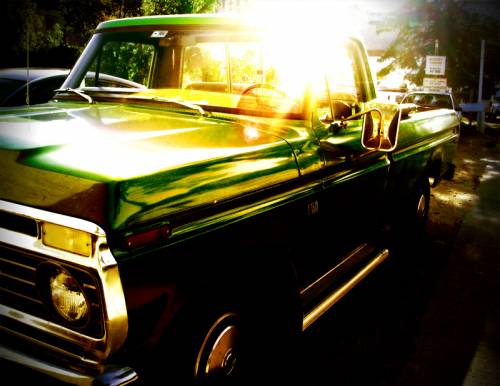
Congress proposed a policy last week that would pay you up to $4500 on a gas guzzling trade-in, applicable towards a new fuel efficient vehicle. On the surface, this sounds great: getting those pollution spewing cars off the road and replacing them with efficient gas sippers, which “would reduce our dependence on foreign oil, decrease greenhouse gas emissions and stimulate the economy.”
Or maybe not. I think this policy’s a clunker. Here’s why.
Like many suburban moms, I drive a minivan. A 2004 Honda Odyssey, to be exact; and now that I’m no longer buckling three kids into bohemoth carseats I’m ready to downgrade. Can I turn my gas guzzling minivan in and get cash towards a new vehicle with better mileage?
As it turns out, no. Trade-ins, under this policy, must be from 2002 or newer and have a when-new fuel efficiency rating of 18 miles per gallon or less. My Odyssey is too efficient! And, running the numbers, I found that I could probably trade it in to a dealership for over $6000, meaning this plan wouldn’t be budget-friendly anyway.
So who does benefit from this policy? What kind of cars qualify?
Playing around, I discover that a 2002 Land Rover meets the fuel efficiency criteria, getting an average of 12 miles to the gallon. However, its resale value is even better than my Honda, estimated at over $7000. Not a deal most people would take. The popular Ford F150 pick-up truck meets the efficiency quotient and also the trade-in quotient, as a dealer would probably offer less than $3000 for it. But every Ford truck owner I’ve ever known has boasted about how their truck will run forever.
Which brings me to other problems with “Cash for Clunkers” beyond the money. Isn’t it better to keep driving the vehicle you have, than to take on the footprint of a new car? The cars are being turned in for scrap: should the government really be supporting a throwaway/ buy new attitude right now?
Maybe a better idea would be for the government to help people stay in the cars they currently own, instead of attempting to boost the economy by encouraging new cars and new debt. Perhaps there could be tax rebates for repairs that improve car mileage, or true “clunkers” could be comprehensively taken apart (green jobs being created in the process!). Viable parts could be sold to dealers for low prices (provided those savings get passed on to the customer). Tax breaks for donating cars to charity could be increased.
In the meantime, the automotive industry could concentrate on building new cars with new and improved technologies, and the government could work on ways to make those new and improved technologies attractive and financially possible for the average family.
I’d really like to shrink my carbon footprint with a hybrid car, but it looks like “Cash for Clunkers” isn’t going to get me any closer to that goal. How does your car stack up? When you calculate the fuel efficiency and trade-in value of your family vehicle, does it seem like this program would be worth your while?
And do you see any more ways this policy could be improved?
Image credit: xxxtoff at Flickr under Creative Commons
Well it doesn’t sound like this program would work for me either because my vehicle is too old. I just don’t understand how they are calling cars that are from 2002 or newer clunkers. I don’t even consider my 1999 vehicle to be an actual clunker, granted I would love to trade in for something more efficient. Too weird to me to call a car that is 7 years or newer a clunker.
Very good points.
My truck doesn’t qualify (2001 Ford F150), plus I do plan on keeping it until it finally quits. I think they have the right idea, with at least trying to go in the right direction but I agree, advocating the disposable consumerism really isn’t going to help the planet.
I believe that keeping an older car running and on the road is really the ultimate in re-cycling! How much energy will be used in the smashing, smelting, etc. to “reclaim” useble material from on old car? How much polution will be pumped into the air and into our rivers by such a process? I believe that I am being a responsible “Green” adult by just keeping my vehicle safe, running, and in use. This stupid idea will only impose hardship on the families that can not afford a new car, or do not want to risk entering into the long term debt of a new car when jobs are so shaky.